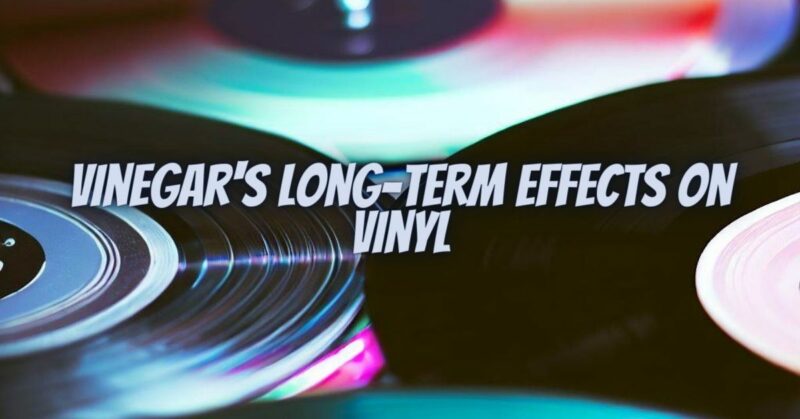Vinyl records, with their warm analog sound, have experienced a resurgence in popularity, attracting both seasoned audiophiles and newcomers to the world of analog music. When it comes to cleaning vinyl records, there is a debate about the use of household items like vinegar. While vinegar is often recommended as a cost-effective cleaning solution, questions arise regarding its long-term effects on vinyl. In this article, we will explore the use of vinegar for cleaning vinyl records and its potential long-term impacts on these cherished analog artifacts.
Vinegar as a Vinyl Cleaning Agent
Vinegar is a commonly used household item known for its cleaning properties. It is often suggested as an alternative cleaning solution for vinyl records, primarily due to its ability to remove surface dirt, dust, and some types of residue. When used in moderation and properly diluted, vinegar can help restore the playability of vinyl records, especially those that have accumulated surface contaminants over time.
The Concerns About Vinegar on Vinyl Records
While vinegar can be effective for cleaning vinyl records on a short-term basis, there are concerns about its long-term effects:
- Acidic Nature: Vinegar is mildly acidic, with a pH level of around 2-3. Vinyl records are made from a plastic material called polyvinyl chloride (PVC), which can be sensitive to acids. Prolonged exposure to acidic substances like vinegar can potentially damage the vinyl over time.
- Potential for Residue: Even when properly diluted, vinegar may leave behind residues on the surface of the record. These residues can attract dust and contaminants, potentially impacting playback quality.
- Degradation of Labels: If vinegar comes into contact with record labels, it may cause label deterioration, fading, or disintegration over time.
- Styrene Records: Some vintage records, particularly those made from styrene rather than traditional vinyl, are more vulnerable to damage from vinegar due to their different chemical composition.
- Record Grooves: Vinegar can potentially penetrate the grooves of the record, affecting the playback quality if not thoroughly rinsed and dried.
Best Practices for Using Vinegar on Vinyl
If you choose to use vinegar for cleaning vinyl records, follow these best practices to minimize potential long-term effects:
- Dilute Vinegar: Always dilute vinegar with distilled water to reduce its acidity. A common recommendation is to use a 20% vinegar to 80% distilled water solution.
- Minimal Contact Time: Limit the contact time between the vinegar solution and the record surface. Apply the solution sparingly and avoid prolonged exposure.
- Gentle Cleaning: Use a soft, lint-free cloth or a specialized vinyl record cleaning brush to apply and remove the solution. Gently clean the surface in a circular motion, following the grooves.
- Rinse Thoroughly: After cleaning with vinegar, rinse the record with distilled water to remove any residue. Ensure the record is completely dry before playback.
- Avoid Labels: Be cautious not to let the vinegar solution come into contact with the record labels, as this can lead to label damage.
While vinegar can be an effective short-term cleaning solution for vinyl records, its long-term effects on vinyl and potential for residue and label damage raise concerns among collectors and audiophiles. If you choose to use vinegar, do so with caution, following the recommended best practices to minimize its impact on your cherished vinyl records. Alternatively, consider investing in specialized record cleaning solutions and equipment designed to safely and effectively clean and preserve the longevity of your vinyl collection.


